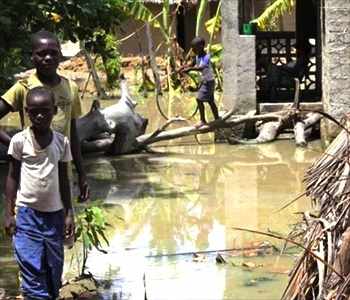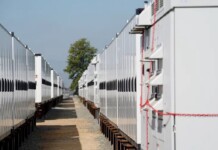 Some good came out of the flooding that swept through Mozambique in 2000. At the same time as marooned Mozambicans on high ground were being rescued by soldiers in helicopters, historical stereotypes were being erased and the hated enemy was fast becoming a hero.
Some good came out of the flooding that swept through Mozambique in 2000. At the same time as marooned Mozambicans on high ground were being rescued by soldiers in helicopters, historical stereotypes were being erased and the hated enemy was fast becoming a hero.
The soldiers had arrived from neighboring South Africa where the once white-minority controlled government had been perhaps Mozambique’s worst enemy because of its unwanted interference in a civil war to topple the country’s socialist government. Said one flood survivor, Laurence Valoyi, “You couldn’t pay someone to say something good about South Africans then. I know I hated them.”
The Southern part of Africa has been transformed since the days of war in Mozambique and apartheid in South Africa. The 16-year civil war in Mozambique is over, and the country has shifted from Marxist ideology into a free-market economy that has become a model for the developing world. South Africa’s oppressive white regime collapsed six years ago and, upon his release from an 18-year prison sentence, Nelson Mandela was elected president in the debut democratic elections. Mandela is now married to the widow of Mozambique’s former president.
Today the people of Mozambique feel a great deal of gratitude for the South Africans. Valoyi has a new way of thinking about the people he once despised as bullies, “They saved a lot of people. You’d have to work very hard to find someone who would say something bad about the South Africans now.”
(From a story by Jon Jeter, Washington Post Foreign Service)



















